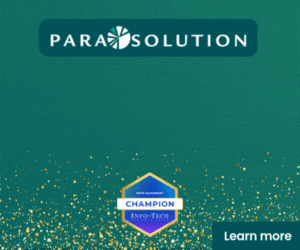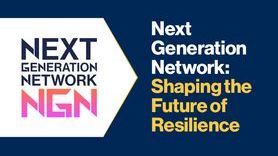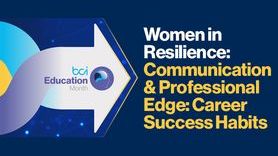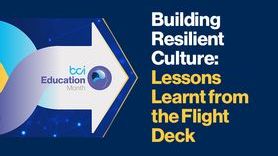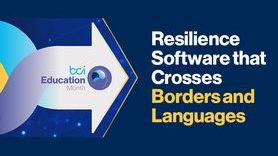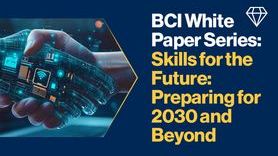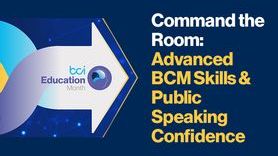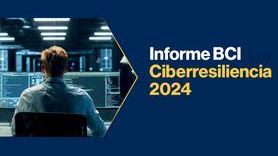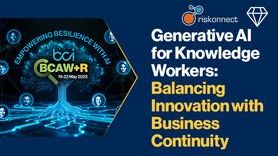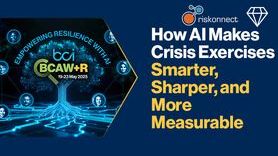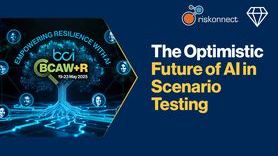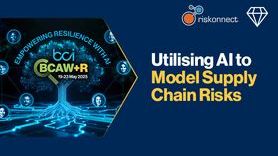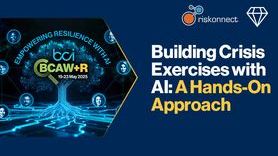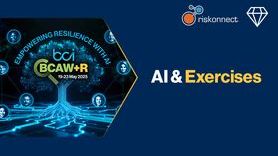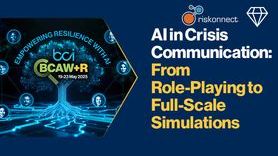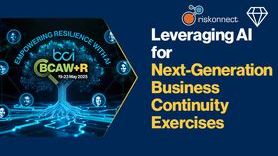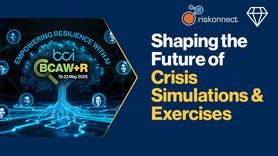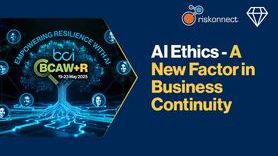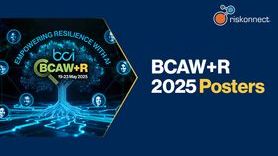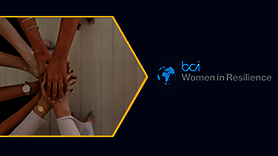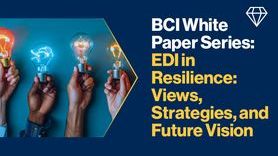BCI WiR: A personal endeavour by Sandra Rennard MBCI

How do you test resiliency? You must exercise / test/practice. Crisis Management, Business Continuity, and Disaster Recovery all need testing. In our own personal lives, that can be done by pushing the limits of our comfort zone by doing things that we are intimidated by or fearful of.
For me, this lesson was recently highlighted by my middle daughter, Madison. Madison (Maddie) is 16 and a junior in high school. She has played competitive soccer, competed in cross country running, and Nordic skiing. This year in the fall she announced, “instead of running this year, I want to try flag football”. We were supportive and she had fun, although she did break her thumb before the season was over. Then, as the winter season was starting, she said “instead of skiing this year, I want to try hockey”. We asked her numerous times if she was sure. She knew what she’d be up against: we live in Alaska, so some girls have been playing hockey since they were young. It seemed much riskier than the leap into flag football. I was concerned about both the expense of the gear and the risk to her body. A close friend said “I did the same thing in high school and my parents bought me everything to get started. I played one game and got so slammed I never stepped back on the ice.” I worried this could be the case for Maddie, but I supported her choice. Gratefully, we received a lot of gear used or on loan. She made the JV team and started practising.
At her first game, every other player would throw themselves over the wall onto the ice. Maddie carefully used the little door and stepped out. She did get slammed hard more than once. One time it was directly in front of us. We were standing by the plexiglass looking down at her as she lay flat on her back on the ice. I was so incredibly proud of her as I saw her big eyes open wide see us, smile, and jump back up. She also had six friends show up to cheer her on, which I know was powerful support.
At the end of the game, we waited for her to come off the ice. As she did, we told her how proud we were of her. She stepped over to us. A single slow tear came down her face and she said, “No. my team hates me. I’m the weak link – the worst one out there.” We reassured her that she was being overly hard on herself for a first game. We also said she might be imagining that, surely they realized she was new to the sport. She said that her own teammates had yelled “girl, what?!” when she didn’t respond properly. Fortunately, we quickly got mobbed by her friend group coming to greet her. She wiped that tear away with one finger and spent time talking to them. By the time she headed to the locker room she was laughing with them. Still, she looked fearful of entering that locker room with her team.
We are now further into hockey season and she’s gotten to “play up” with the Varsity team multiple times. By her second game on JV what impressed me the most (because I still know I couldn’t do it!) is how she threw herself over that wall coming on and off the ice. She’s only got an inch on my 5’2” frame, so to me that is an impressive feat in all that gear. She’s had assists, a few break aways, and several shots on goal, although no actual goals yet. She still knows she isn’t as experienced as the other players, but is more comfortable playing on both teams. She kept coming back, which is part of what resilience is: coming back in the face of adversity.
Reflecting on her experience made me think about ways that I can also step out of my comfort zone. I figured a good gauge would be things I could do that would make someone say “girl, what?!” So, I signed up to do the Polar Plunge for special Olympics. I received several “you’re crazy!” comments when I announced this to family and friends. On December 17th, they cut a square in a nearby lake (while it was -8°F) and I jumped into it and swam across. Maddie did it as well and everyone who told us we were crazy only assured me that I was on the right track.
I have decided to keep pushing my comfort zone on a monthly basis. For January, I’ll be doing my first big jump into public speaking at a new level. I applied and was accepted to tell a story at Anchorage’s “Arctic Entries” event. Similar to Maddie, I’m fortunate to have many friends who will attend to support me, as support is also key to resiliency. Supporting others as they test their own limits is what can empower them to make a difference. Support can be the critical element between someone walking away or not. It can shift what feels like failure to a mindset of potential. It can move "what if I can't" to “but what if I CAN”. Likewise, an organization can build a support structure that can also change mindsets.
I challenge each of you to pick up this challenge for 2023. At a personal level, think about any fleeting thought or desire you’ve had that you dismissed. Perhaps you were risk averse to something. Odds are high you eliminated it as an option before you ever even voiced it out loud. Voice it! When you tell others, you hold yourself accountable. You may create the support base that makes it possible. Resiliency depends on that support base, that foundation. If you step out of your comfort zone you may find support in places you never expected. That can propel you onwards and upwards. WHAT IF YOU CAN. You don’t know until you try or until you test yourself. Be on the lookout for others doing this as well and empower them with your support. Women in Resilience, push the limits: Include, Empower, and Test! Make the world say “girl, what!?”, even if it’s one month at a time.


